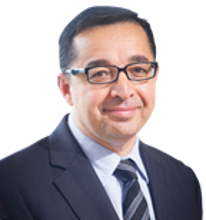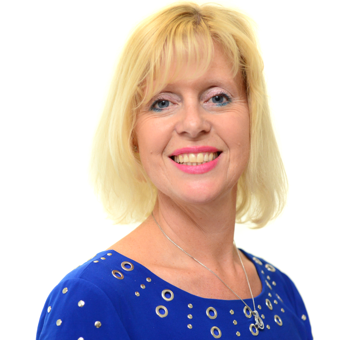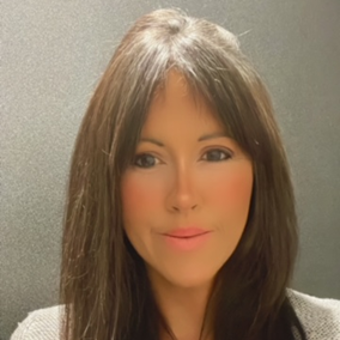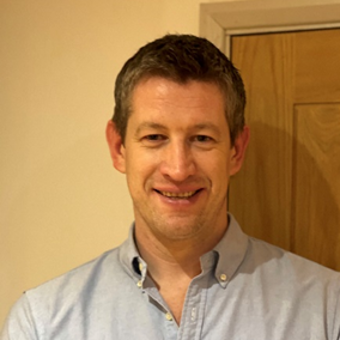Andrew Grech, group managing director of Slater and Gordon, on growth, acquisitions and the future direction of the firm
Andrew, can you tell readers of The Brief a bit about your own background & career history?
I was raised in Melbourne, the son of Maltese immigrants to Australia who helped install a strong work ethic during my early years. I completed a Bachelor of Laws at the University of Melbourne in 1988 and was admitted as a barrister and solicitor of the Supreme Court of Victoria in 1989. I joined Slater and Gordon in 1994, working across most areas of litigation.
I was then made a partner in 1996, and became Managing Director in 2000. At this point in time, Slater and Gordon was primarily a Victorian based law firm with a small presence in Sydney and Perth. Eight years ago, I was privileged to be among the leadership group of Slater and Gordon who decided to take advantage of the change in ownership laws in Australia. We made the decision to publically list the firm – the first in the world to do so.
We really wanted to build a national law firm that stretched across Australia with an expanded range of legal services whilst at the same time maintaining a focus on providing affordable and innovative legal services for people. Post listing, my work expanded from the management of our operations into overseeing mergers and acquisitions in Australia. This also included the expansion of our legal services into new areas; primarily in what we call our General Law Division. This encompasses a wide variety of practice groups including family law, property, wills and estate planning, industrial and employment law, criminal and regulatory work, commercial litigation, professional negligence and group or class actions.
Three years ago we decided to move overseas and into the United Kingdom. We did this via the acquisition of Russell, Jones and Walker - a firm with a long history and a great reputation in the UK. Before making that decision we had undertaken a lot of research and had held discussions with a number of law firms - some of which have since joined us.
In most recent history, a lot of my work has expanded from dealing with our leaders in the Australian and UK businesses to also dealing with our external stakeholders, such as investors. In part, my role is to educate people who are not familiar with legal services about who our clients are and how the business of a law firm actually works. It also means educating them about our constitution which puts the administration of justice and our clients ahead of our obligations to shareholders.
The latest significant milestone in my career at Slater and Gordon is the planned acquisition of Quindell’s Professional Services Division. This is significant not just due to its size and scale but because of its transformative nature. In the past, we have sought to integrate and re-brand acquisitions under the Slater and Gordon banner but due to the uniqueness of PSD it will operate as a standalone business reporting to Ken Fowlie. Ken is a 21 year veteran of Slater and Gordon and was recently appointed to the new role of MD – UK and Europe
I’ve travelled extensively since being in the MD’s role. Initially, that was focussed within Australia where we operate from 70 locations, but more recently I spend a significant period of time each year in the UK; primarily in London and Manchester. I am extremely proud of what we have achieved thus far, but most of all I’m proud of the people who make it possible. A strong legal services and management team has been built up over the years, and our clients and our values sit at the centre of our work. I believe that I have been a strong advocate for the importance of putting the client at the centre of everything we do.
Outside of work, I have served as the founding chair of the Youth Junction Inc, which is a not for profit youth charity operating in Victoria; I remain a member of its voluntary board. I am also a member of the Advisory Council of the Melbourne Law School (University of Melbourne).
How did the takeovers with Walker Smith Way and Leo Abse & Cohen go?
Both transactions have now been completed and we are in the process of integrating the firms within Slater and Gordon. This involves a lot of training, sharing of information and mutual learning. We are in the process of moving both businesses over to our new IT systems, so that we will all be operating on one IT platform shortly.
We also hope to have all of our Cardiff staff working out of one office within the next 12 months. So, we are very pleased with how the transactions have developed and look forward to getting to know all of our new colleagues. It’s a privilege to have the opportunity to work with such a high calibre group.
What’s the latest with Quindell?
We announced our intention to acquire the Professional Services Division of Quindell on 30th March 2015. It is about 90% of their business and in addition to the law firm it includes complementary motor, health and marketing services business units.The process has involved a number of steps:
- We had a very successful equity raising process in which we raised support from existing and new shareholders
- Then Quindell shareholders gave the vote of approval for the sale on April 17th
- We have now received regulatory approval from the SRA.
- We now also have FCA approval so the transaction is unconditional and will move to Completion shortly.
- We are also in the midst of finalising all of the legal requirements and banking requirements that are associated with the transaction.
Acquisitions have been a big part of the firm’s growth strategy so what are the plans for the UK over the next 12 months? Will we be seeing more of them or will you be focussing on building the firm in other ways?
We will always remain open to acquisition opportunities but for now we are conscious that we need to focus on the transactions we have already completed and on completion of the PSD transaction. It is important to us that we continue to grow the brand and reputation in the UK amongst our clients. In addition to the acquisitions, we have made great progress establishing the S+G brand and are seeing the sort of organic growth we had hoped we would... which is very encouraging.
What kinds of work and cases are the firm now working on?
The firm provides a suite of services to assist clients in all manner of situations. We are most well-known for our work within personal injury, including sexual abuse, medical negligence, workplace accidents, disease claims and road traffic accidents.
We also have highly regarded employment law, family law and criminal law and regulatory teams which are enjoying strong levels of growth. We have a growing real estate team with local and international experience and we have also developed a range of services for businesses and a group or class actions litigation capacity. We are broadening our offering of personal legal services across the UK and we are in the process of developing a new service specific to our union and membership organisation clients. We are continuing to look at ways in which we can improve the experience of clients and the outcomes they achieve.
Will you be looking to grow specific departments?
Whilst we are a leading provider of personal injury services, we are keen for people to come to use us for their other legal needs. So to that end, we see growth potential for our firm’s General Law practice which includes business and specialised litigation services, real estate, crime and regulation, family law, employment, reputation and professional discipline.
The team has been involved in some pretty high profile cases recently – most notably working with many victims of the sex abuse scandals. What impact have they had on the firm and its profile?
The work that our abuse team has been doing for the past two years has been incredibly tough but also incredibly rewarding. For the first time in decades, victims were able to tell their stories and be heard. Through the hard work of our staff, many of the survivors of this horrific abuse have not only been given a voice but also been assisted in moving on with their lives. There has been a lot of media attention surrounding our clients and in turn Slater and Gordon. We have been fortunate enough to use this profile to educate the wider public on the seriousness of the offences and the impact sexual abuse can have on someone’s life.
We have also used the platform to campaign for Mandatory Reporting on behalf of our clients and influence the narrative around how the community responds to sexual abuse allegations in the UK. I am incredibly proud of the work that our specialist abuse teams have done and continue to do in this area.
On a lighter note, the new Slater and Gordon branding has been launched. What’s the reaction been like?
Really positive: The message that we are ‘guiding clients to brighter outcomes’ seems to have resonated with both clients and our staff. Our advertising is reaching a wide range of people and the awareness of the brand is increasing as a result. After a period of a number of transactions it’s been the perfect opportunity to refresh our look and have all of our staff come together under one Slater and Gordon brand.
Finally, where would you like to be in 10 years’ time? Still head of Slater and Gordon?
Working with the team at Slater and Gordon to try and ensure that we are delivering world class legal services for our clients and contributing to meeting the wider challenge of improving access to the legal system. We believe the decade ahead offers a great opportunity to innovate in the delivery of a broad range of legal services as well as services which are complementary to these core legal services.
I remain very proud to work in a place that has stayed true to its values. Our primary driver remains to make world class legal services more accessible to people. We have a duty to seek out ways to provide meaningful, innovative and accessible solutions to a key problem which undermines the proper administration to justice: the lack of access to legal services.
To that end, Alternative Business Structures are playing an important role in providing greater access to the legal system and I would hope that in 10 years’ time we will be able to look back and see how our approach has contributed to ensuring that people can access world class legal services.












